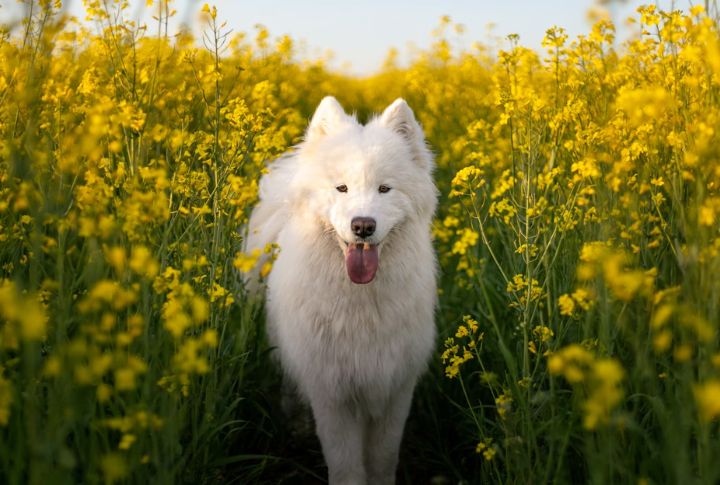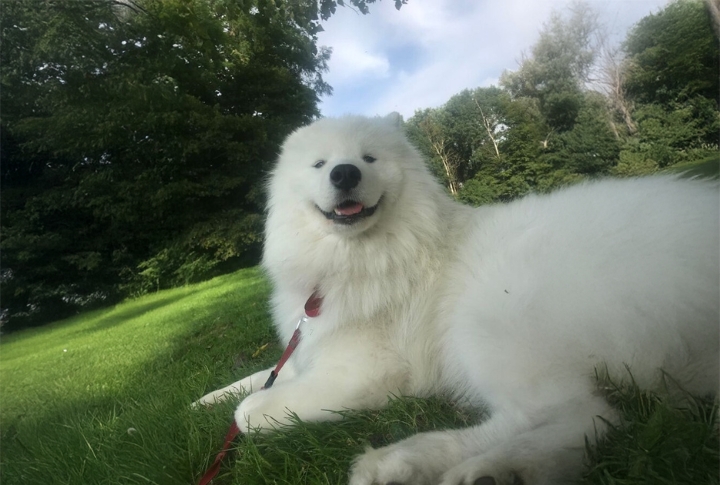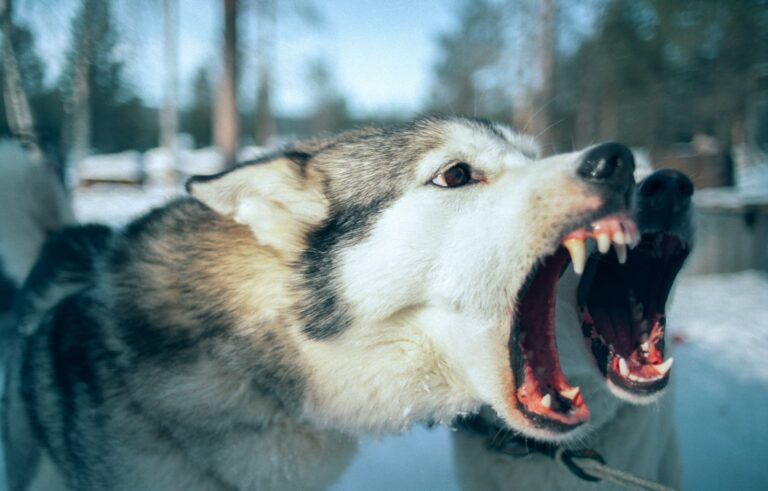What To Expect When You’re Raising A Samoyed

That fluffy smile hides a wild ride. Raising a Samoyed isn’t all snow angels and cuddles—it’s full-time cardio, endless fur, and emotional cling. They’ll charm you instantly, then leave you Googling “why won’t my dog chill?” Let’s see what it really takes to keep up.
Sunshine In Fur

Samoyeds are emotional anchors. Nicknamed “smiling Sammies,” they radiate positivity with their grinning faces, cheerful energy, and constant need for closeness. These dogs don’t just love their families—they form deep, emotional bonds. Their joyful presence lifts moods after a stressful work day.
Always Active

Bred to thrive in Siberian conditions, the dog is highly active. It needs daily walks or yard play to stay balanced and healthy. Without sufficient stimulation, a Sammy can become bored or destructive. So, keeping the dog busy is essential for a well-adjusted and happy dog.
Built For Purpose

Samoyeds were bred to pull sleds, herd reindeer, and keep their humans warm in brutal Siberian winters. This strong working instinct gives them focus and drive. Owners who tap into this legacy with jobs or structured tasks often find a more fulfilled and better-behaved companion.
Social Butterflies

Samoyeds are naturally social and get along well with children and other pets. Their friendliness even extends to strangers, making them poor guard dogs but wonderful family companions. However, without proper socialization, they may become overly clingy or anxious when left alone for too long.
Intelligent Learners

The dogs are quick thinkers, capable of learning commands and tricks with surprising ease. Their intelligence shines in agility, obedience, and interactive play. Samoyeds respond best to engaging, positive training sessions and enjoy mentally stimulating tasks like puzzle toys. Keeping their sharp minds busy is also a key to good behavior.
Not For Hot Climates

Despite the advantages of owning a Samoyed, the pet struggles in hot or humid climates. The dense coat traps warmth close to the body. That’s why cooler surroundings are essential in warmer seasons. Hot environments, on the other hand, demand careful management to prevent overheating and ensure their comfort.
Homebodies With Needs

Samoyeds are not fans of solitude. Left alone too long, they may bark, dig, or become visibly anxious. This breed thrives in households where someone is often around, or routines are predictable. Managing their separation sensitivity is necessary for maintaining peace of mind for both the dog and its owners.
Training Challenges

Despite their smarts, Samoyeds usually have a mind of their own. They can be willful and independent, ignoring commands if unmotivated. Success comes with consistency, patience, and positive reinforcement, not harsh discipline. Starting early with such structured obedience training helps tame their stubborn streak and develop reliable habits.
Vocal Tendencies

Samoyeds are highly expressive and love to vocalize. Whether barking to alert or “talking” in playful whines and howls, they’re not a quiet breed. Without proper boundaries and training, their chatter can become excessive, making noise management a must, especially for apartment dwellers or quiet neighborhoods.
Cost Of Care

Owning a Samoyed comes with long-term costs. Their grooming needs can lead to frequent salon visits, while their diet demands high-quality food to support energy and coat health. Veterinary bills and training sessions can also add up quickly, making them better suited for owners who are prepared for the financial commitment.





